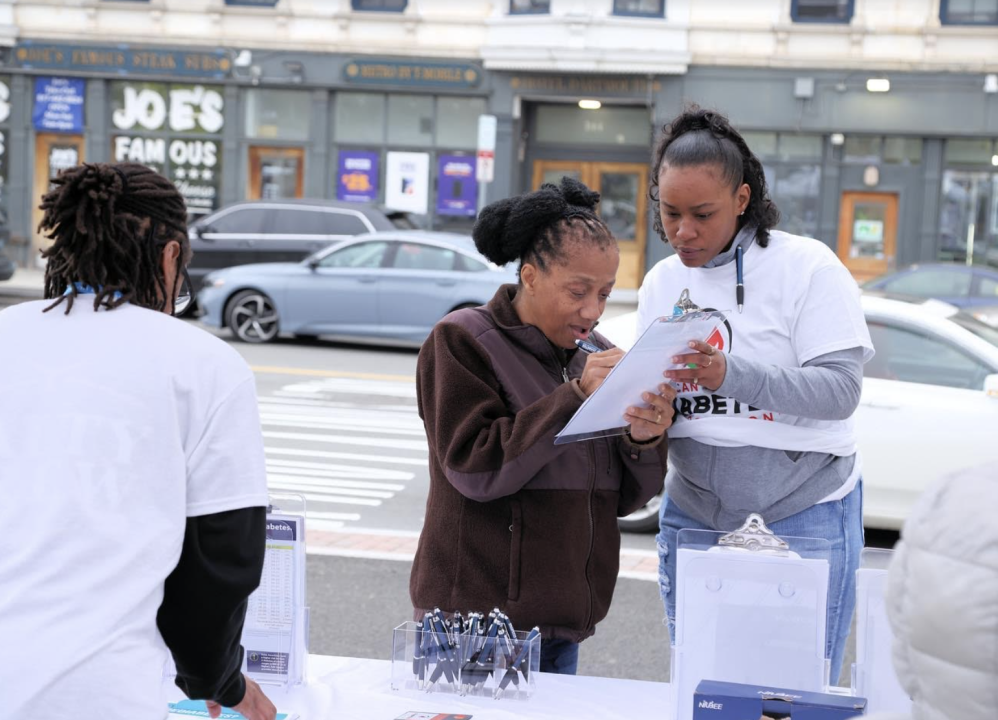Our Mission
The African American Diabetes Association (AADA) is a national tax-exempt 501c3 non-profit organization led by African Americans. We serve as a voice for Black Americans with or at risk of diabetes, addressing the alarming health disparities caused by a legacy of systemic racism. These disparities include restricted healthcare access and unethical medical practices that disproportionately harm Black communities. Building on the legacy of Negro Health Week, we're dedicated to addressing health inequities, especially the disproportionate burden of diabetes in Black communities. Existing efforts haven't closed the gap, with Black Americans experiencing diabetes rates nearly double those of non-Hispanic whites. The COVID-19 pandemic further exposed this disparity. Our vision is a future where Black communities have the resources they need to prevent and effectively manage diabetes.
Donate Now
Our Impact
10 months ago — Boston, Massachusetts, DC and Maryland

In metro Boston, Massachusetts, and Maryland, the African American Diabetes Association (AADA) launched an initiative to address diabetes's impact on Black communities. We began with educational workshops in community centers and churches, focusing on prevention, management strategies, and early detection. Workshops included practical skills like meal planning and monitoring blood sugar levels. AADA's approach is culturally sensitive, tailoring materials to resonate with local Black communities, fostering trust and engagement. We also formed support groups, providing spaces for sharing experiences and emotional support, enhancing resilience in managing diabetes. Additionally, AADA has advocated for improved healthcare access, collaborating with policymakers and healthcare providers to ensure equitable outcomes for Black individuals with diabetes. Overall, AADA's holistic approach to education, support, and advocacy continues to enhance health outcomes and resilience in metro Boston and Maryland's Black communities affected by diabetes. Our efforts illustrate the potential of community-driven initiatives to address health disparities and promote healthier futures nationwide.
Causes We Support
Countries We Serve
United Nations Sustainable Development Goals
The African American Diabetes Association (AADA) plays a crucial role in advancing two United Nations Sustainable Development Goals (SDGs): Good Health and Well Being (Goal 3) and Sustainable Cities and Communities (Goal 11). Goal 3: Good Health and Well Being AADA focuses on reducing diabetes disparities among African Americans through prevention, education, and support initiatives. By raising awareness, providing resources, and promoting healthy lifestyles, the organization improves health outcomes and addresses broader health disparities beyond diabetes. These efforts align with Goal 3's targets of reducing non-communicable disease mortality and promoting mental well-being. Goal 11: Sustainable Cities and Communities In support of Goal 11, AADA advocates for health equity and access to healthcare services within African American communities. It addresses systemic barriers by promoting community-based health programs, advocating for policy changes, and collaborating with local authorities and healthcare providers. AADA's emphasis on preventive healthcare and chronic disease management contributes to sustainable urban development by reducing healthcare burdens and enhancing community resilience. This supports Goal 11's objectives of inclusive urbanization and access to safe public spaces. The African American Diabetes Association's initiatives are pivotal in advancing Goals 3 and 11 of the UN SDGs. Through education, advocacy, and community engagement, AADA improves health outcomes and fosters sustainable urban environments where health services are accessible to all. These efforts underscore the interconnectedness of health equity and sustainable development in building resilient communities for the future.